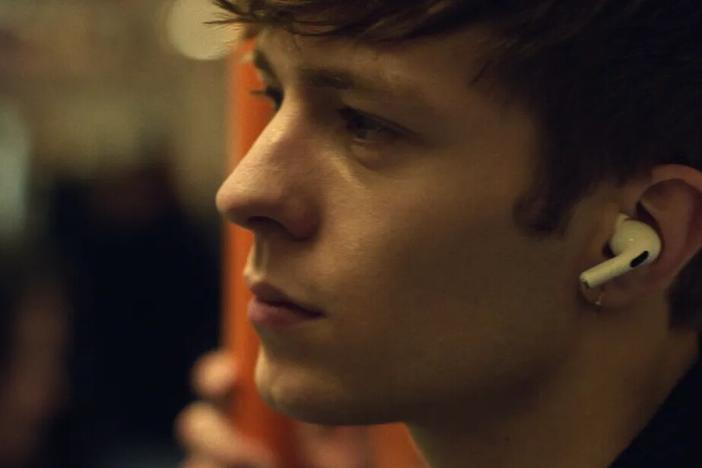Section Branding
Header Content
Hollywood actors are pushing back against studios using AI to clone them
Primary Content
The rise of artificial intelligence has Hollywood actors on edge. Studios are interested in how the technology can allow for digital clones of actors - and actors are pushing back.
Transcript
AYESHA RASCOE, HOST:
Hollywood actors and major studios and streamers have extended their deadline over a new contract. We should note that NPR journalists are represented by the same union, SAG-AFTRA, that's in those negotiations. One issue in those talks has been front and center - artificial intelligence. NPR tech reporter Bobby Allyn takes a look at why actors are on the defensive in the face of the latest AI innovations.
BOBBY ALLYN, BYLINE: AI deepfakes can place a digital version of an actor in a movie. A real actor's face can be inserted on a stunt double seamlessly. AI can make it look like an actor is speaking in a language they don't speak. These are not fantastical sci-fi scenarios. AI wizardry can do all of this now. Actor Ben McKenzie has been following along. McKenzie starred in the hit mid-2000's show "The O.C." McKenzie played Ryan Atwood, a moody teen from the wrong side of the tracks.
(SOUNDBITE OF TV SHOW, "THE O.C.")
UNIDENTIFIED ACTOR: (As character) So you're going to go to Portland?
BEN MCKENZIE: (As Ryan Atwood) No, I can't.
UNIDENTIFIED ACTOR: (As character) You should go if you want to go.
MCKENZIE: (As Ryan Atwood) It's for them to figure out. It's a family.
UNIDENTIFIED ACTOR: (As character) You're not part of their family?
MCKENZIE: (As Ryan Atwood) Not anymore.
ALLYN: Jump ahead two decades - McKenzie and his actor friends are talking a lot about AI.
MCKENZIE: I think the real concern that I hear amongst my fellow actors is how the technology could be used to gain leverage over creatives and to, you know, potentially replace us.
ALLYN: McKenzie says he's worried Hollywood studios will try to cut costs with AI technology, like duplicating all of an actor's abilities in a future production. It would save the studios a lot of money. The Screen Actors Guild is pushing for actors to get paid fairly for this kind of AI use.
MCKENZIE: If there was no floor, then understandably, it would be a race to the bottom. And you could get someone who's, you know, just starting out to, like, sign over their entire life, theoretically, to, you know, some company to use their likeness.
ALLYN: The fears go beyond digital AI doubles being used in films. Leigh Brecheen is an entertainment lawyer in Los Angeles who represents A-list actors. She says there are other concerns.
LEIGH BRECHEEN: We are also trying to make sure that our clients' performances can't be used to train AI.
ALLYN: Meaning her clients have been pushing for contract terms that now include not allowing past performances to be put into an AI to generate something new. Some actors, she says, are already compiling digital libraries of themselves to potentially license for the use in AI.
BRECHEEN: Not just their name and likeness but the essence of their personality and performance - the thing people hire them for.
ALLYN: James Earl Jones, for instance, has agreed to have his voice cloned for use after his death.
(SOUNDBITE OF TV SHOW, "OBI-WAN KENOBI")
JAMES EARL JONES: (As Darth Vader) Prove yourself, and the position of Grand Inquisitor is yours.
ALLYN: So that iconic Darth Vader voice could appear in film saying something totally new many decades from now. This kind of situation is supported by the Screen Actors Guild, and it's OK with something else - using AI when an actor isn't available to play a part as long as actors are paid fairly. But others in Hollywood are resisting the AI movement hard, like Justine Bateman. She's a longtime actress and director. She says it seems like every day, AI can do more and more things for movies. It almost feels like it's constantly nagging her.
JUSTINE BATEMAN: To me, AI seems like a super annoying assistant who's about to get fired, you know? He's like, do you want me to do this for you? Do you want me to do that for you? Do you want me to get you your food? Do you want me to feed you? Do you want me to eat it for you? It's like, no.
ALLYN: She says, there are plenty of societal issues AI should tackle.
BATEMAN: But there's not a problem in the entertainment business that AI is solving.
ALLYN: Former "O.C." star McKenzie says he's more worried about AI taking away writing gigs from him more than upcoming acting roles. On acting, though, there are some definite lines he would not let AI cross.
Now, what if Fox made a fifth season of "The O.C." by casting a digital body double of you (laughter)?
MCKENZIE: Yeah, that's baloney.
ALLYN: Hollywood's writers are currently on strike, and AI replacing work is also a major concern. Bobby Allyn, NPR News, Los Angeles. Transcript provided by NPR, Copyright NPR.
Bottom Content



